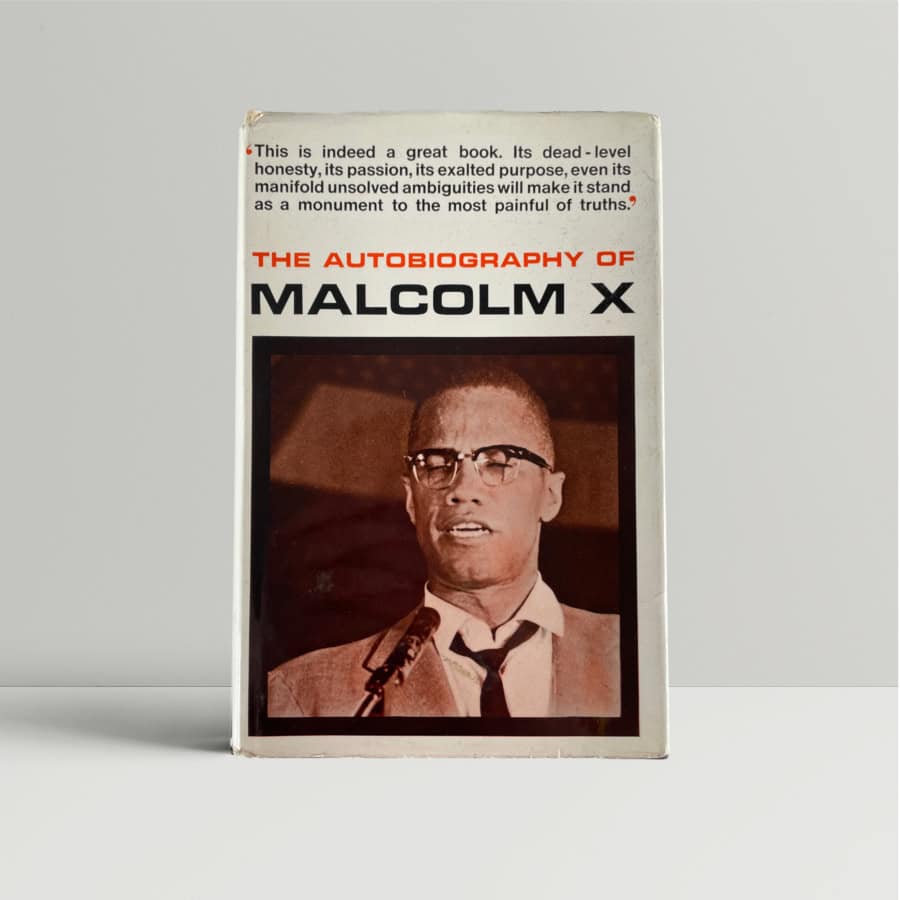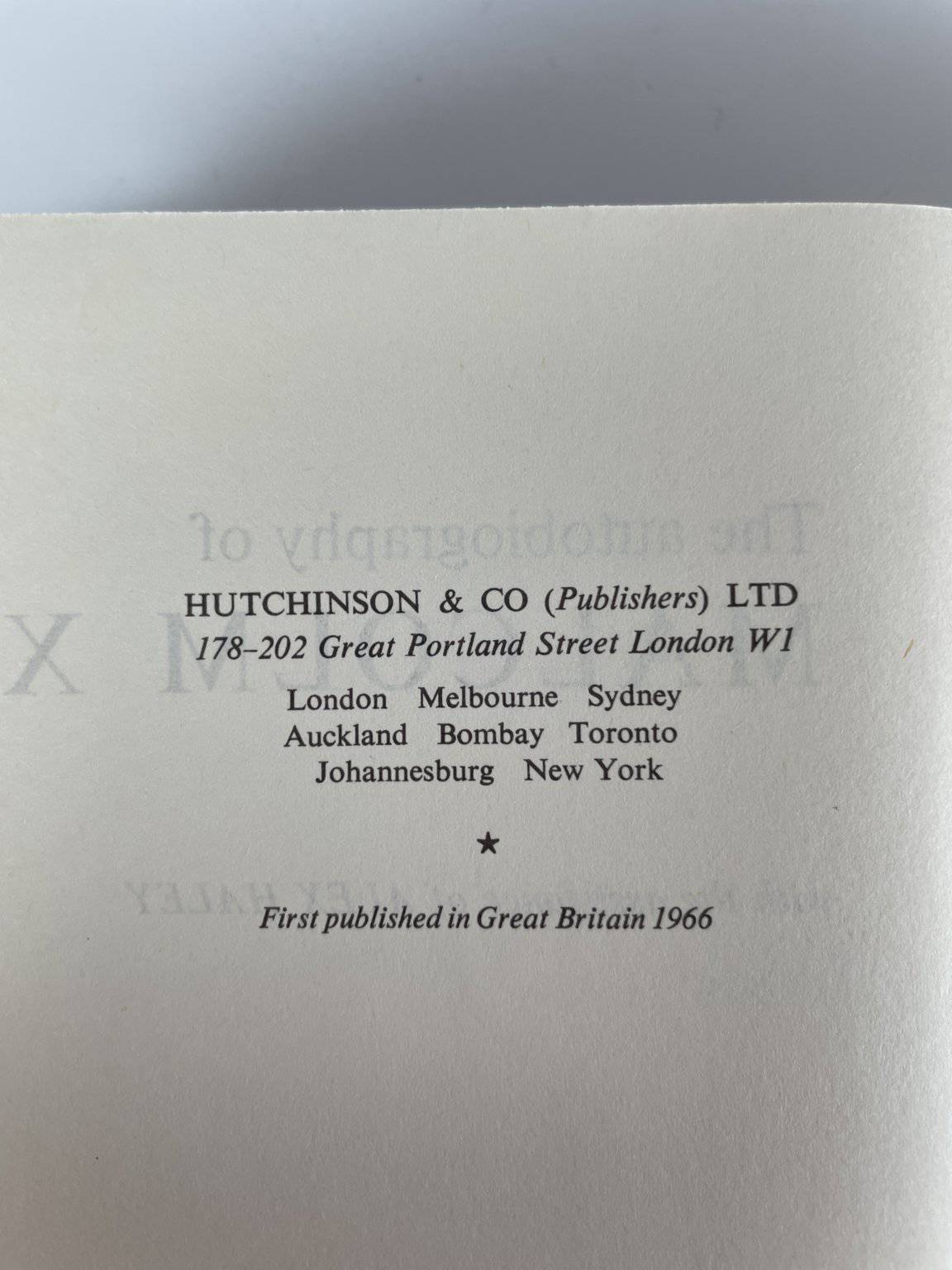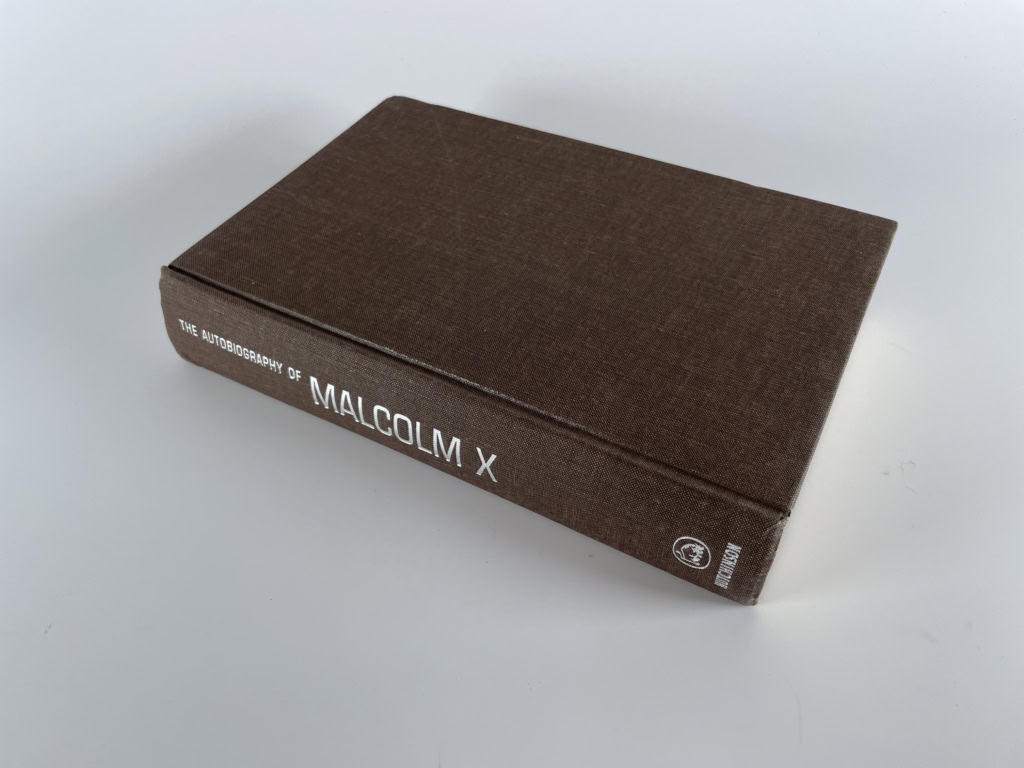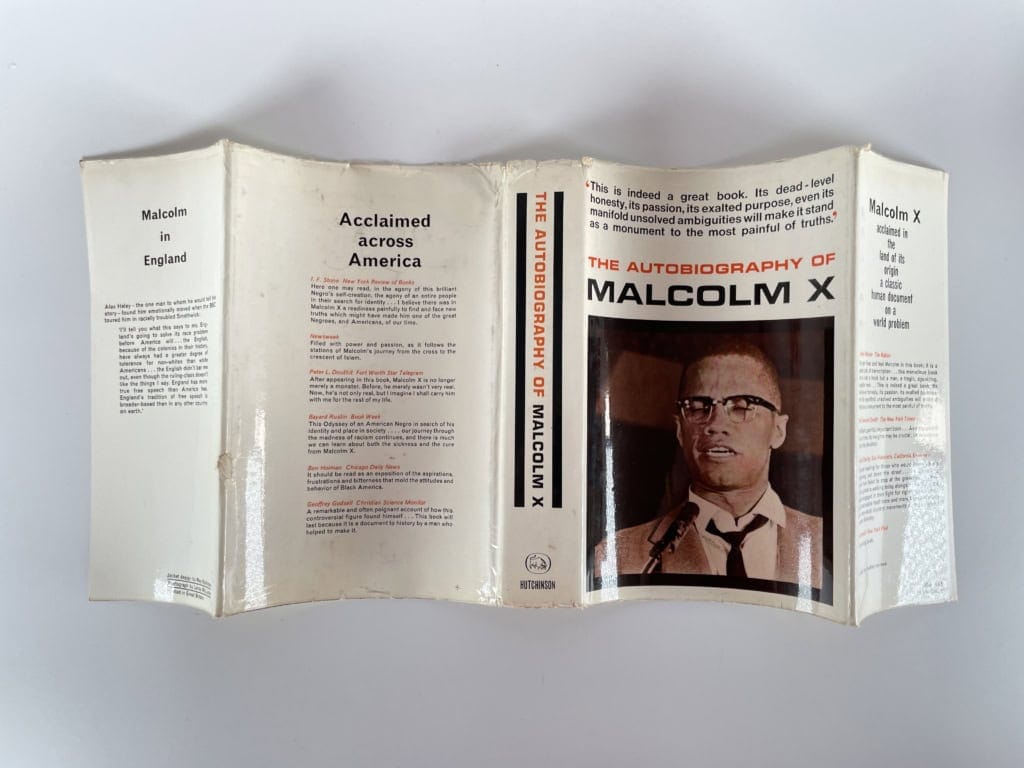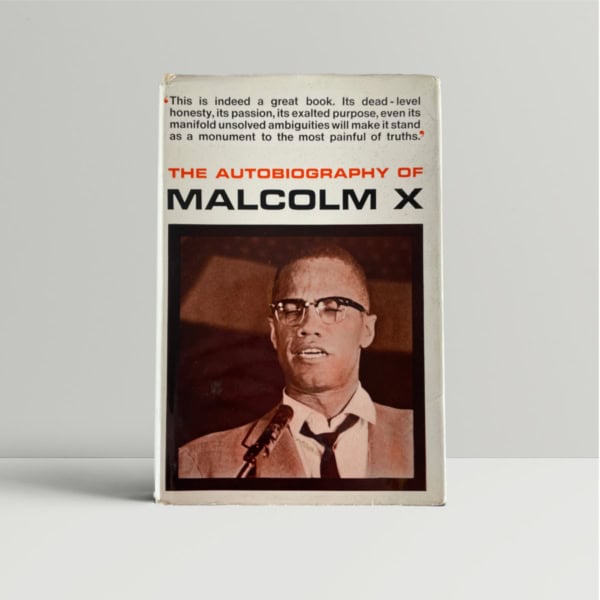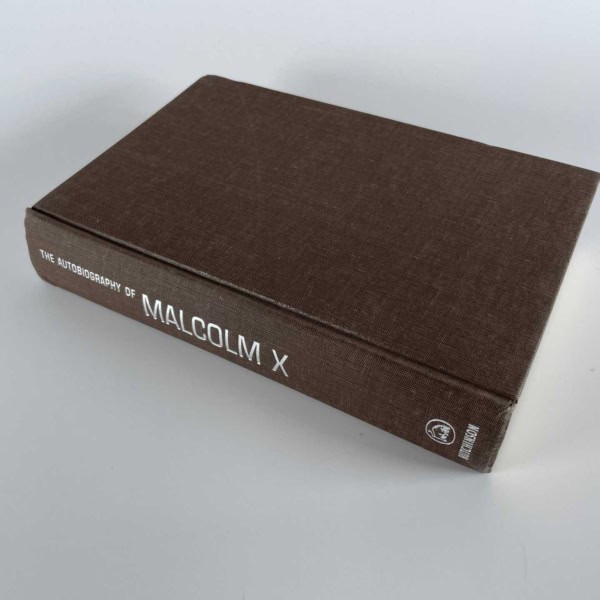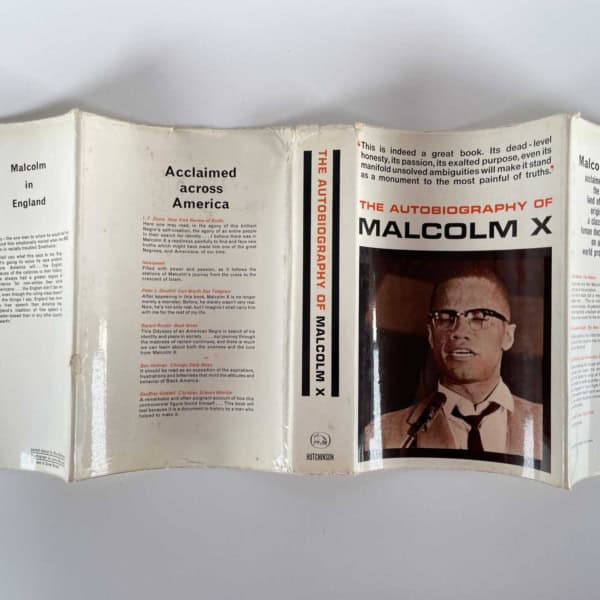Alex Haley – The Autobiography of Malcolm X – First Edition 1966
£485.00
A first edition, first printing of ‘Autobiography of Malcolm X’ by Alex Haley, published by Hutchinson in 1966. A very good book with a neat gift inscription to the front free endpaper. In a very good unclipped wrapper with a little light chipping to the spine tips and corners.
Malcolm X, born Malcolm Little in 1925, was a prominent African American civil rights leader and spokesperson for the Nation of Islam. His early life was marked by hardship, including the death of his father and his mother’s institutionalisation. After a troubled youth and imprisonment, Malcolm converted to Islam, adopting the name Malcolm X to signify the loss of his African ancestry. He advocated for black empowerment, self-defence, and racial pride, often in contrast to the non-violent approach of Martin Luther King Jr. Malcolm X’s powerful oratory skills and radical ideas garnered significant attention and controversy. In 1964, after a pilgrimage to Mecca, he embraced Sunni Islam and moderated his views on race, advocating for human rights and unity. His life was tragically cut short when he was assassinated in 1965. Malcolm X’s legacy endures as a symbol of black resistance and a catalyst for the ongoing struggle for racial justice.
(We don't keep all of our stock in the shop, so send us an email if you're planning a trip to see a particular author or book.)
- Description
Description
A first edition, first printing of ‘Autobiography of Malcolm X’ by Alex Haley, published by Hutchinson in 1966. A very good book with a neat gift inscription to the front free endpaper. In a very good unclipped wrapper with a little light chipping to the spine tips and corners.
Malcolm X, born Malcolm Little in 1925, was a prominent African American civil rights leader and spokesperson for the Nation of Islam. His early life was marked by hardship, including the death of his father and his mother’s institutionalisation. After a troubled youth and imprisonment, Malcolm converted to Islam, adopting the name Malcolm X to signify the loss of his African ancestry. He advocated for black empowerment, self-defence, and racial pride, often in contrast to the non-violent approach of Martin Luther King Jr. Malcolm X’s powerful oratory skills and radical ideas garnered significant attention and controversy. In 1964, after a pilgrimage to Mecca, he embraced Sunni Islam and moderated his views on race, advocating for human rights and unity. His life was tragically cut short when he was assassinated in 1965. Malcolm X’s legacy endures as a symbol of black resistance and a catalyst for the ongoing struggle for racial justice.

